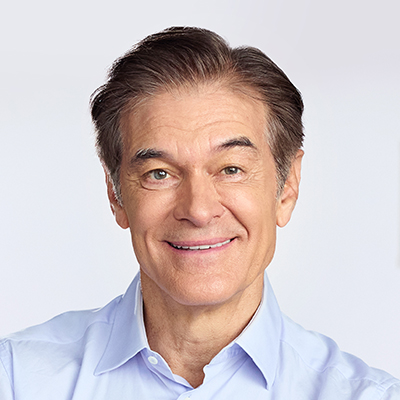假期壓力:自然減壓方式,讓你充分享受節日時光

假期本應是充滿快樂的時刻,然而對很多人來說,假期卻帶來了巨大的壓力。美國心理學會近期的一項民意調查顯示,有89%的美國成年人在假期感到壓力,主要是因爲擔憂財務狀況、思念家人以及潛在的家庭衝突。近一半的人表示,壓力嚴重影響了他們享受節假日的興致。
爲了幫助你應對這些挑戰,以下是一些自然的減壓方式,可以讓你充分享受節日的快樂。
1. 抽出時間讓自己和世界變得更快樂
假期的壓力可能導致情緒和身體上的問題,如情緒不穩、頭部疼痛、脫發、體重管理困難和血壓上升。隨着氣溫的降低,你也需要“冷靜”下來。
首先,我們需要換個角度來看待節假日——它們並不是競爭的場合(有40%的受訪者這樣感覺)。相反,我們應該專注於節日的真正含義:慷慨給予、與家人團聚以及自我關懷。一種自然且效果良好的減壓方法是做志願者。與朋友或家人一起組織一場活動,爲當地的慈善機構做貢獻。這不僅能讓你擺脫“索取”心態,還能培養感恩之心和獲得幫助他人的快樂。
2. 採用自然減壓技巧應對假期壓力
假期中管理壓力可能是一個挑戰,但存在一些效果良好而自然的方法來應對這些壓力。
- 適量飲酒:每喝一杯含酒精的飲品,就喝一杯水。避免空腹飲酒,因爲酒精會促使人們暴飲暴食,從而增加節日壓力。
- 多運動:每天至少進行30分鍾的有氧運動。快走或短時間的瑜伽練習可以自然地減輕壓力,提升情緒。
- 優化睡眠質量:假期壓力可能會打亂睡眠模式。爲了應對這種情況,每晚應保證7-8小時的睡眠時間。營造一個寧靜的環境——保持房間涼爽、黑暗,遠離數碼設備的藍光。
這些技巧有助於你在假期期間應對家庭壓力,並讓你在整個假期過程中保持冷靜。
3. 通過抗壓食品和補充劑優化營養攝入
營養在減輕假期壓力方面起着關鍵作用。壓力能導致體內炎性反應增加,因此在飲食中加入能緩解炎性反應的食物非常重要。可以考慮食用:
- 富含Omega-3脂肪酸的肥魚
- 水果和蔬菜
- 橄欖油
- 綠葉蔬菜和堅果
爲了進一步幫助你的身體,在節假日期間可以考慮服用緩解壓力的補充劑。維生素B6和維生素B12對於維持心理健康極爲重要,而維生素C則有助於降低壓力導致的皮質醇水平升高。冬季時,維生素D尤其關鍵,它有助於抵抗因日照減少而可能加劇的節假日壓力和冬季抑鬱症的影響。此外,鎂和其他重要礦物質有助於抵御壓力對身體造成的損害。考慮到便利性,你可以選擇高品質的素食膠囊型綜合維生素和礦物質補充劑。
額外提示:預防壓力性脫發
你知道假期壓力會導致脫發嗎?研究顯示,壓力可以引發所謂的“休止期脫發”,這是一種狀況,其中壓力荷爾蒙使毛囊進入休眠狀態,從而導致頭髮大量脫落。幸運的是,這種情況通常會自行消失。然而,可以通過補充多種維生素來修復,特別是含有B族維生素和生物維生素的復合維生素。使用富含生物維生素的洗髮精可能有助於促進頭髮的健康。
參考資料:
- Money worries, missing loved ones, and family conflict cause stress American Psychological Association. "Stress in America: Stress and Current Events." APA website. Published January 2020. https://www.apa.org/news/press/releases/stress/2020/report
- Duaa Durrani, Rahma Idrees, Hiba Idrees, and Aayat Ellahi. Vitamin B6: A new approach to lowering anxiety, and depression? Ann Med Surg (Lond). 2022 Oct; 82: 104663. Published online 2022 Sep 15. doi: 10.1016/j.amsu.2022.104663
- Marwan Sofyan, Dewi Yunia Fitriani, Dewi Friska, Ray Wagiu Basrowi, and Ahmad Fuady. B Vitamins, work‐related stress and emotional mental disorders: a cross‐sectional study among nurses in Indonesia. Nurs Open. 2022 Jul; 9(4): 2037–2043. Published online 2022 Apr 17. doi: 10.1002/nop2.1213
- Anita L. Hansen, Gina Ambroziak, David Thornton, James C. Mundt, Rachel E. Kahn, Lisbeth Dahl, Leif Waage, Daniel Kattenbraker, Pedro Araujo, Robert Murison, Knut Rypdal, and Bjørn Grung. Vitamin D Supplementation during Winter: Effects on Stress Resilience in a Randomized Control Trial. Nutrients. 2020 Nov; 12(11): 3258. Published online 2020 Oct 24. doi: 10.3390/nu12113258
- Gisèle Pickering, André Mazur, Marion Trousselard, Przemyslaw Bienkowski, Natalia Yaltsewa, Mohamed Amessou, Lionel Noah, and Etienne Pouteau. Magnesium Status and Stress: The Vicious Circle Concept Revisited. Nutrients. 2020 Dec; 12(12): 3672. Published online 2020 Nov 28. doi: 10.3390/nu12123672
- Elizabeth C. Hughes; Hasnain A. Syed; Dahlia Saleh. Telogen Effluvium, StatPearls [Internet]. Last Update: May 1, 2024.
- Fathia M Khattab , Areeg Rady , Shrook A Khashaba. Recent modalities in treatment of telogen effluvium: Comparative study. Dermatol Ther. 2022 Oct;35(10):e15720. doi: 10.1111/dth.15720. Epub 2022 Aug 8.
- Stress can lead to mood swings and headaches
McEwen BS. Stress, adaptation, and disease. Allostasis and allostatic load. Ann N Y Acad Sci. 1998;840(1):33-44. doi:10.1111/j.1749-6632.1998.tb09546.x - Stress-related hair loss. Trüeb RM. Stress and the hair follicle: A psychodermatological perspective. Dermatology. 2004;208(2):91-96. doi:10.1159/000076487
- Stress and weight gain. Dallman MF, Pecoraro NC, la Fleur SE. Chronic stress and comfort foods: Self-medication and abdominal obesity. Brain Behav Immun. 2005;19(4):275-280. doi:10.1016/j.bbi.2004.11.004
- Stress and blood pressure. Spruill TM. Chronic psychosocial stress and hypertension. Curr Hypertens Rep. 2010;12(1):10-16. doi:10.1007/s11906-009-0084-8
- Anti-inflammatory effects of omega-3s, olive oil, and leafy greens
Calder PC. Omega-3 polyunsaturated fatty acids and inflammatory processes: Nutrition or pharmacology? Br J Clin Pharmacol. 2013;75(3):645-662. doi:10.1111/j.1365-2125.2012.04374.x - Vitamin B6 and B12 in stress management. Kennedy DO. B vitamins and the brain: Mechanisms, dose, and efficacy—A review. Nutrients. 2016;8(2):68. doi:10.3390/nu8020068
- Vitamin C and cortisol reduction. Brody S, Preut R, Schommer K, Schürmeyer TH. Vitamin C high-dose and acute psychological stress response. Psychopharmacology (Berl). 2002;159(3):319-324. doi:10.1007/s00213-001-0923-8
- Vitamin D and winter-related mood. Kjaergaard M, Waterloo K, Wang CE, et al. Effect of vitamin D supplementation on symptoms of depression in overweight and obese subjects: Randomized double-blind trial. J Intern Med. 2012;272(1):81-90. doi:10.1111/j.1365-2796.2012.02539.x
- Magnesium for stress and inflammation. Tarleton EK, Littenberg B. Magnesium intake and depression in adults. J Am Board Fam Med. 2015;28(2):249-256. doi:10.3122/jabfm.2015.02.140259
- Telogen effluvium and stress-related hair loss. Malkud S. Telogen effluvium: A review. J Clin Diagn Res. 2015;9(9)
. doi:10.7860/JCDR/2015/14260.6533 - Multivitamin benefits for hair loss. Almohanna HM, Ahmed AA, Tsatalis JP, Tosti A. The role of vitamins and minerals in hair loss: A review. Dermatol Ther (Heidelb). 2019;9(1):51-70. doi:10.1007/s13555-018-0278-6
免責聲明:本健康中心不提供診斷⋯

































 目錄
目錄


